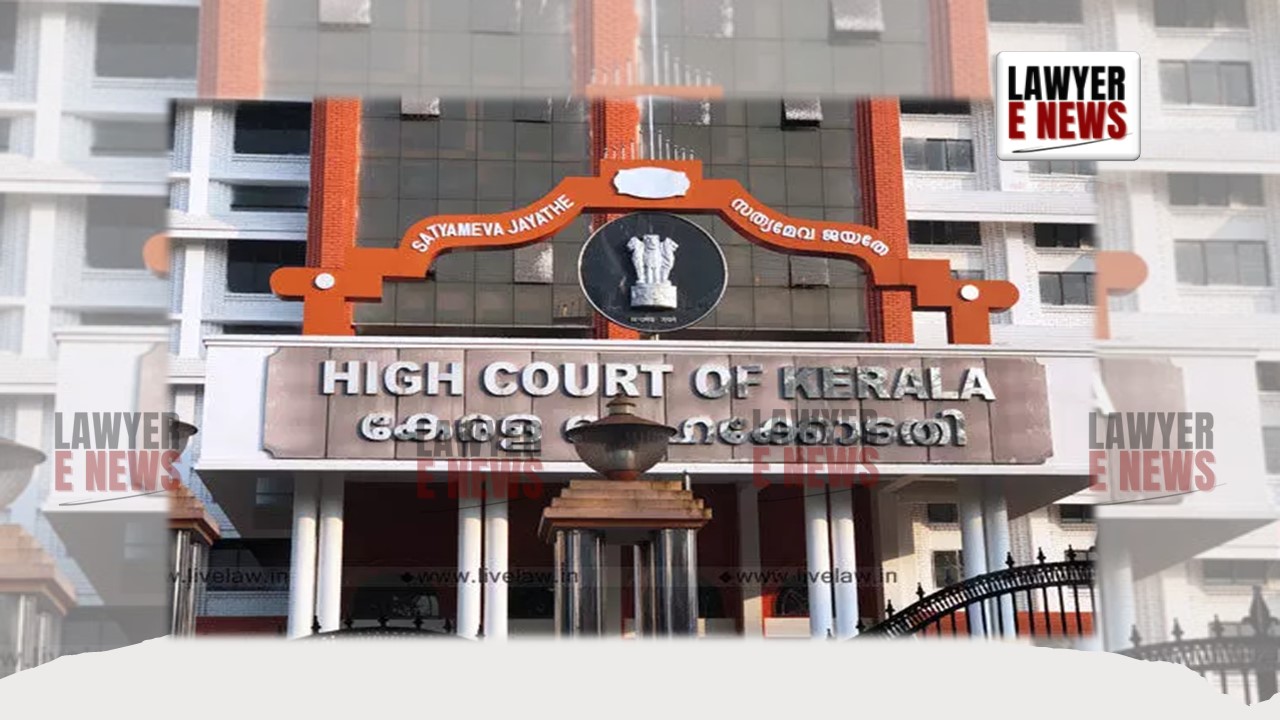-
by Admin
15 February 2026 5:35 AM



Kerala High Court, in Nimmy Dominic v. State of Kerala & Ors., declined to issue a writ of habeas corpus sought by a mother alleging illegal detention of her three-year-old daughter by her estranged husband and his family. The Court permitted the mother to retain temporary custody until November 24, 2024, emphasizing that custody disputes must be settled through appropriate legal proceedings rather than invoking extraordinary writ remedies.
Nimmy Dominic, the petitioner, approached the High Court seeking the release of her daughter, alleging that her estranged husband, Noel Sam, and his parents had taken the child to an undisclosed location in Mumbai. Dominic claimed she had no access to her child since the respondents moved away after a custody dispute arose.
The respondents countered these allegations, presenting a family court injunction (Exhibit R5(c)) preventing the petitioner from forcibly taking the child from their custody. They asserted that the child was in their lawful custody and that no court had yet resolved the primary custody issue.
The petitioner invoked habeas corpus jurisdiction, arguing that her child was being illegally detained in violation of her parental rights.
The Bench, comprising Justices Devan Ramachandran and M.B. Snehalatha, emphasized that habeas corpus jurisdiction is limited to determining unlawful detention. Justice Ramachandran stated:
“Habeas corpus cannot be used as a tool for deciding custody disputes between parents. Unless there is a clear finding of illegal detention, the court must refrain from exercising jurisdiction that intrudes into matters meant for family courts.”
The Court noted that the family court had already issued an injunction, and no specific orders existed adjudicating custody in favor of either party. Thus, the respondents’ custody of the child could not be deemed illegal.
Acknowledging the sensitive nature of the dispute, the Court facilitated an interim arrangement allowing the mother to spend time with the child within the court premises. Justice Snehalatha observed:
“The child appeared calm and comfortable in the mother’s arms, highlighting the natural bond between them. However, such interactions must be nurtured through legal and structured mechanisms rather than ad hoc judicial interventions.”
The Court permitted the mother to retain custody until November 24, 2024, instructing her to return the child to the respondents at the designated time and location.
The judgment stressed that custody disputes are best resolved in specialized forums equipped to assess the welfare of the child comprehensively. Justice Ramachandran remarked:
“Every liberty is left open to the parties to pursue custody claims before the appropriate forums. The High Court's role in such cases is circumscribed, and parties must not substitute family court proceedings with writ petitions.”
Dismissing the habeas corpus petition, the Court issued the following directions:
The mother was allowed to retain custody until 4:00 p.m. on November 24, 2024, after which she must return the child to the respondents at their temporary residence in Kochi.
Both parties were granted the liberty to pursue custody claims before the family court without prejudice from the High Court’s observations.
The family court was directed to expedite the adjudication of custody matters, considering the child’s welfare as paramount.
This judgment underscores the Kerala High Court’s restraint in exercising habeas corpus jurisdiction for custody disputes, reaffirming the primacy of family courts in such matters. By balancing the mother’s concerns with procedural propriety, the ruling reflects a nuanced approach to sensitive family disputes.
Date of Decision: November 22, 2024
